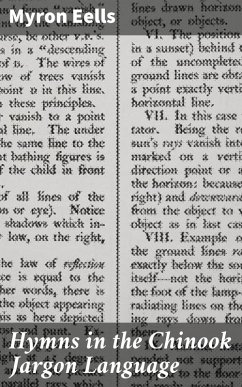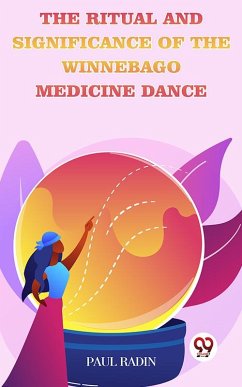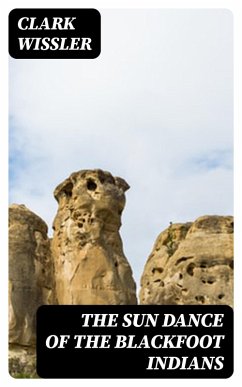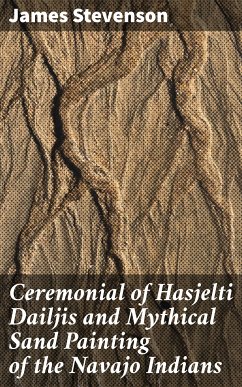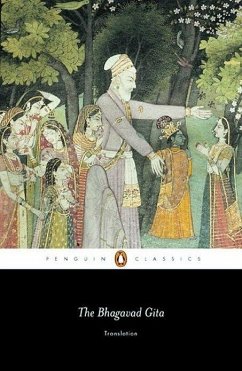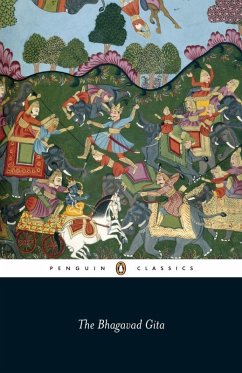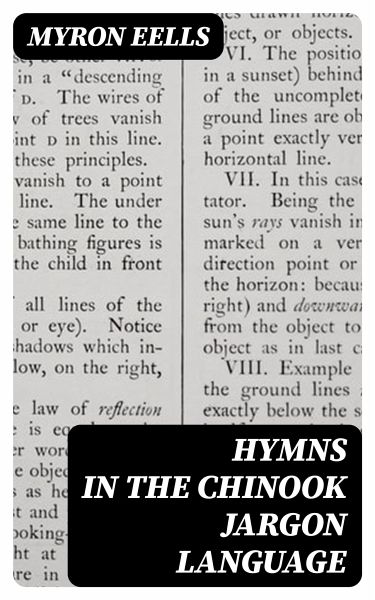
Hymns in the Chinook Jargon Language (eBook, ePUB)
Versandkostenfrei!
Sofort per Download lieferbar
0,49 €
inkl. MwSt.
Weitere Ausgaben:

PAYBACK Punkte
0 °P sammeln!
In "Hymns in the Chinook Jargon Language," Myron Eells presents a collection of sacred hymns rendered into the unique and historically significant Chinook Jargon, a pidgin language that served as a vital means of communication among the Indigenous peoples of the Pacific Northwest and European settlers. Eells employs a poetic yet accessible literary style, intertwining spirituality with the linguistic characteristics of the Jargon, thus preserving and celebrating a rich cultural heritage that has often been marginalized. The book not only serves as a hymnbook but also as a linguistic artifact, ...
In "Hymns in the Chinook Jargon Language," Myron Eells presents a collection of sacred hymns rendered into the unique and historically significant Chinook Jargon, a pidgin language that served as a vital means of communication among the Indigenous peoples of the Pacific Northwest and European settlers. Eells employs a poetic yet accessible literary style, intertwining spirituality with the linguistic characteristics of the Jargon, thus preserving and celebrating a rich cultural heritage that has often been marginalized. The book not only serves as a hymnbook but also as a linguistic artifact, revealing the interplay between language, faith, and cultural identity in a rapidly changing world during the 19th century. Myron Eells, an influential missionary and ethnographer, dedicated much of his life to understanding and documenting the languages and cultures of the Pacific Northwest tribes. His deep connection with both the Indigenous populations and the settlers informed his conviction that religion could bridge cultural divides. This passion led him to create a compendium of hymns that would resonate with the spiritual needs of the community while also prioritizing the preservation of their linguistic legacy. Readers interested in linguistic diversity, Indigenous cultures, and the historical interplay between religion and language will find "Hymns in the Chinook Jargon Language" an invaluable text. Eells' work offers unique insights into the spiritual life of a community while highlighting the importance of language as a tool for cultural resilience, making it an essential read for scholars and enthusiasts alike.
Dieser Download kann aus rechtlichen Gründen nur mit Rechnungsadresse in A, B, BG, CY, CZ, D, DK, EW, E, FIN, F, GR, H, IRL, I, LT, L, LR, M, NL, PL, P, R, S, SLO, SK ausgeliefert werden.




